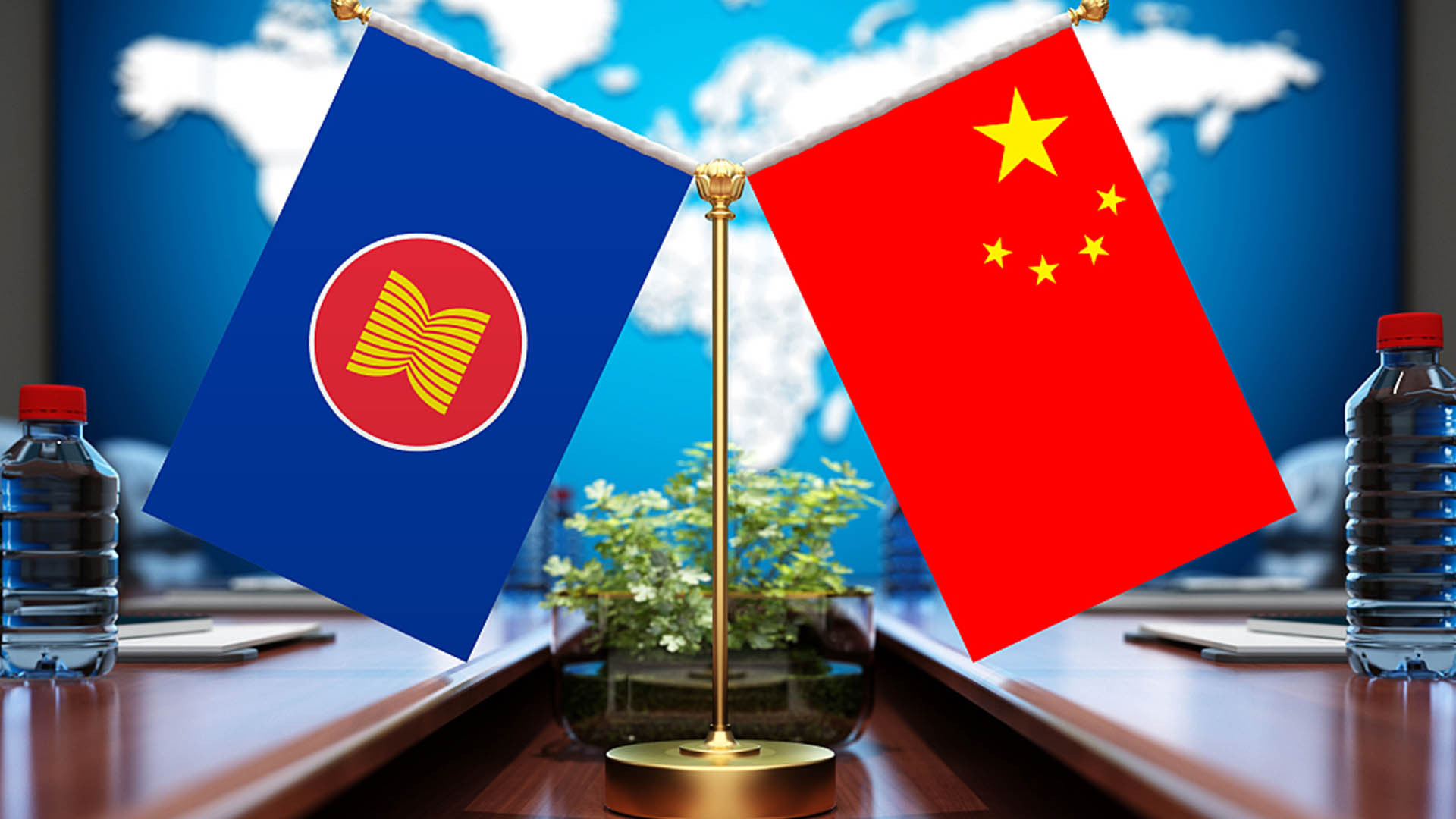
Chinese Premier Li Qiang attends the 26th ASEAN Plus Three (APT) Summit in Jakarta, Indonesia, September 6, 2023. /Xinhua
Chinese Premier Li Qiang attends the 26th ASEAN Plus Three (APT) Summit in Jakarta, Indonesia, September 6, 2023. /Xinhua
Editor's note: Daryl Guppy, a special commentator on current affairs for CGTN, is an international financial technical analysis expert. He has provided weekly Shanghai Index analyses for mainland Chinese media for more than a decade. Guppy appears regularly on CNBC Asia and is known as "The Chart Man." He is a former national board member of the Australia China Business Council. The article reflects the author's opinions and not necessarily those of CGTN.
The centrality of ASEAN in the development and stability of the region is the core challenge of the meeting in Jakarta. ASEAN has served the interests of this region since its formation by refusing to be involved in ideological blocs. Members are acutely aware of the devastation that came with the Cold War ideological conflict that shaped the war in Vietnam and impacted all ASEAN countries.
It is this historical experience that drives the ambition of the Jakarta meeting to remain neutral despite the attempts by some guests to turn the meeting into a platform for geopolitical gains. Determined neutrality is essential for ASEAN to consolidate the gains made since its formation.
China plays a significant role in preserving ASEAN centrality and respecting the consensus style of decision-making that frustrates so many Western observers. This respect for different paths to development also lies at the center of the Global Development Initiative outlined at the 76th session of the United Nations General Assembly by Chinese President Xi Jinping.
Singapore's Prime Minister Lee Hsien Loong urged members to use their strength to encourage China and the U.S. to show leadership in working co-operatively in the region. One key to this is genuine support for the Regional Comprehensive Economic Program (RCEP) and its deliberation process. The most important challenge is to avoid making decisions based on a desire for ideological domination. It's important that RCEP is able to avoid being used as a surrogate for foreign policy objectives to support unilateral sanctions already imposed by the United States.
One of the decisive areas is the setting of standards for the digital economy. China is well advanced in developing a digital economic framework. The objective of the Digital Economy Framework Agreement announced in Jakarta is to set universal standards for the digital economy built on the world's best practices rather than ideological preference.
This is a pressure that runs counter to the spirit of RCEP because the agreement is a primary cooperation point designed to capture and resolve regional trade problems. The Jakarta meeting seeks to establish more cooperation in the future as this reduces the pressure for regional conflict.
There are several areas where China and ASEAN countries could enlarge the scale of economic cooperation.

Flags of China and ASEAN. /CFP
Flags of China and ASEAN. /CFP
The first area is the development of the metaphysical trade system. This is the software system integration that underpins the digital economy. It includes the development of system standards that make cross-border trade and trade settlement easier. These are the operating principles that underpin the growth of the green economy and facilitate the pathways to poverty alleviation.
There is no point in using drone technology to monitor crop growth and environmental impacts if the drone uses an incompatible data system. This is what is so essential in the setting of common digital standards to underpin the digital economy.
These initiatives build on the current strong economic links within the ASEAN region which remain solid at a time when it appears that globalization is facing serious challenges. ASEAN recognizes that globalization is unstoppable and that the diversity of logistic chains is good for everybody as it enables all to move up the value chain. ASEAN centrality aims to support a free and open digital standards environment that is not distorted by narrow geo-political coercion.
The most significant challenge in Jakarta is to decide how ASEAN countries can avoid tipping the balance between China and the U.S., and maintain sustainable economic growth despite the influence of the competition between them. To do this, ASEAN must maintain healthy ties with both countries.
The United States has shown it is prepared to hamper and undermine ASEAN growth through the use of sanctions and the collateral damage inflicted by the CHIPS Act. Geopolitical thinking drives U.S. engagement with China and they see ASEAN in this context. U.S. President Joe Biden's choice to visit Vietnam rather than Indonesia shows the U.S. continues to run its own agenda and is not fully committed to ASEAN objectives. They seek individual alliances rather than general trade cooperation. As in the past, the U.S. is happy to ferment unrest to its own advantage.
Despite these pressures, ASEAN has chosen to present a united front by confirming its neutrality and promoting its centrality in the formulation of decisions taken in the region. ASEAN is an important mediator because it doesn't come with a political agenda.The U.S.-led organizations always have a political system agenda. Their attempts to impose a U.S.-style democracy have almost universally failed.
ASEAN is not always as immediately effective as many outside of Asia would like, but it does reach enduring mediated solutions. Unlike the United States and its allies, China respects and supports this distinctive ASEAN process. It is this cooperative and non-ideological approach that is ASEAN's secret to success. Both China and ASEAN recognize there are different development paths and do not impose ideological preconditions and unsuitable political structures on economic development.
(If you want to contribute and have specific expertise, please contact us at opinions@cgtn.com. Follow @thouse_opinions on Twitter to discover the latest commentaries in the CGTN Opinion Section.)